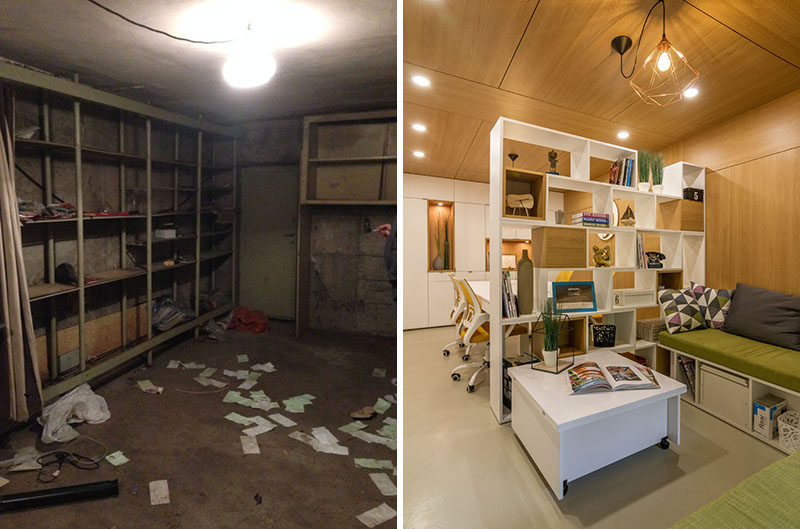Garage conversion is a popular topic of discussion when it comes to home renovation projects. For a variety of reasons, many homeowners think about turning their garages into extra living space. It can be to make room for an expanding family, build a home office, or add a rental unit to generate additional revenue. But is converting a garage a smart financial decision? We’ll examine the elements to take into account before starting this transforming journey in this essay.

Assessing Your Needs
Before diving into a garage conversion, it’s essential to assess your needs. Are you in desperate need of extra living space, or is it a fleeting desire? Consider your long-term plans for the property. If you’re planning to sell the house in the near future, it’s vital to understand your potential buyers’ preferences and whether a converted garage would be appealing to them.
Cost Considerations
One of the primary concerns when considering a garage conversion is the cost. While it can be more cost-effective than building a new addition to your home, it’s still a significant investment. You’ll need to budget for materials, labor, permits, and any unforeseen expenses that may arise during the renovation process. It’s advisable to obtain quotes from multiple contractors to get a better idea of the overall cost.
Return on Investment (ROI)
The ROI of a garage conversion can vary widely depending on several factors. If done correctly and in line with local real estate trends, it can add substantial value to your home. However, it’s crucial to research the local housing market and consult with real estate professionals to determine the potential ROI for your specific area. In some cases, a garage conversion may not yield a high return, making it a less attractive investment.
Zoning and Permitting
Garage conversions often require permits and must adhere to local zoning regulations. It’s essential to check with your local planning department to understand the specific requirements in your area. Failure to obtain the necessary permits or comply with zoning regulations can lead to costly fines and legal issues down the road.
Impact on Resale Value
When considering a garage conversion, think about how it will affect the resale value of your home. Some potential buyers may view the loss of a garage as a disadvantage, especially if parking space is limited in your neighborhood. On the other hand, if the garage conversion is well-executed and adds functional living space, it could attract buyers looking for extra rooms.
Functional and Aesthetic Considerations
The success of a garage conversion often hinges on how well the space is designed and utilized. Consider the functionality of the new space and how it will fit into your daily life. Also, pay attention to the aesthetics, as a seamless integration with the rest of the house can enhance its appeal and value.
Quality of Work
Choosing the right contractor is crucial for the success of your garage conversion project. Make sure to hire a licensed and reputable professional with experience in garage conversions. Check references, view their portfolio, and get a detailed contract outlining the scope of work, timelines, and payment schedules.
Utility and Accessibility
Consider how utilities will be incorporated into the converted space. If you plan to add a bathroom or kitchenette, you’ll need to account for plumbing and electrical work. Additionally, ensure that the space is easily accessible and meets safety standards, especially if it will be used as a bedroom or rental unit.
Lifestyle and Long-Term Plans
Think about your lifestyle and long-term plans when deciding on a garage conversion. If you need additional living space for your family, it can be a practical investment. However, if you’re considering it solely for potential financial gain, it’s essential to weigh the costs and returns carefully.
Alternative Options
Before committing to a garage conversion, explore alternative options. Depending on your needs and budget, you might find other home improvement projects that offer better value for your investment. These could include finishing an attic or basement, building a detached accessory dwelling unit (ADU), or simply reorganizing your existing living space.
Conclusion
Undoubtedly, a garage conversion represents a potentially fruitful investment when undertaken with a holistic perspective. Its true value emerges when it harmonizes with your overarching objectives, elevates your day-to-day living experience, and unfolds through meticulous planning and thoughtful deliberation. Yet, it’s crucial to acknowledge that a garage conversion isn’t a universally applicable remedy; its viability hinges upon a multitude of factors, such as the geographical context, prevailing local real estate dynamics, and the craftsmanship dedicated to the transformation. Thus, prior to embarking on this transformative journey, a thorough exploration of the concept, an earnest evaluation of your unique requisites, and judicious consultations with experienced professionals should serve as the compass guiding your path, ensuring that your investment augments not only your home’s functionality but also nurtures your financial well-being over the course of time.

